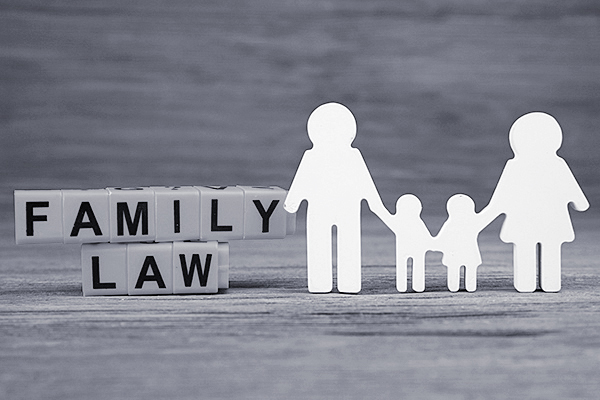Family Law

MASSACHUSETTS FAMILY LAW ATTORNEY
Whether you’re sure you’d like a divorce or simply considering the possibility of ending your marriage, it’s important to get solid legal advice about your rights and obligations as soon as possible.
Matrimonial laws have changed significantly in recent decades so your assumptions about alimony, child support, custody and property division may be outdated. The sooner you understand what you’re entitled to, the closer you are to reaching an agreement with your spouse without a long and drawn out legal battle. That’s why it’s important to consult with an experienced Massachusetts family law attorney who can patiently explain how the law views your circumstances.
The Botelho Group prides itself in helping families exit marriages in a way that is most beneficial to all parties, including any children of the marriage.
Putting Your Family First
At the Botelho Group we work with families to craft solutions that create a transition from marriage that is most beneficial to all parties concerned. We carefully examine your finances, your relationship with your children, your childcare options, your career opportunities and all other aspects of your married life to understand what type of arrangement would work best for you going forward.
For example, your emotional attachment to your home may be getting in the way of a solution that would give you more time to enjoy with your children.
Buying out the home from your spouse, plus a mortgage and upkeep on a large home, may require you to work long hours, whereas downsizing would provide more leisure time. We’ll patiently review all aspects of your case to develop a plan that you feel comfortable with.
Negotiation, Mediation and Litigation
The longer it takes to resolve your case, the more expensive and stressful it becomes. That’s why our first course of action is always to attempt to negotiate an amicable settlement.
If that’s not possible, we’ll try to use alternative dispute resolution techniques such as mediation to help you develop a settlement that works best for everybody concerned. When it’s not possible to get your spouse to agree to a settlement, we’ll aggressively litigate your case in court.
Equitable Division Of Property In A Massachusetts Divorce
Massachusetts law requires marital property to be distributed equitably in a divorce. Marital property refers to interests and possessions that have been acquired during the course of the marriage, but the distinction is not always crystal clear.
For example, if you brought the marital home into the marriage and it’s only in your name, your spouse may still have an interest in it due to marital funds that were spent to improve it. If you’ve received a gift or inheritance, but have commingled the funds with marital assets, your spouse may succeed with claiming the funds are now marital.
Once it’s been determined what property is marital, the court must determine the most equitable and fair way to divide the assets. The court uses the following factors to make this determination:
- The age and health of the spouses;
- The employability and future professional advancement of the spouses;
- The needs and obligations of the spouses;
- Sources of income that are available to each spouse;
- The length of the marriage and
- Spousal misconduct during the marriage.
For example, if one of the spouses is in poor health and/or not able to earn much money, the court is within its rights to award that spouse a larger share of the marital property.
Spousal misconduct for the purposes of equitable distribution usually refers to financial improprieties that wasted marital assets including gambling and reckless investments, but spending large amounts of money on an affair partner would certainly be considered.
Child Custody, Child Support and Alimony
In Massachusetts, joint custody by both parents is the norm, with sole custody awarded only in rare situations. Joint custody means that both parents have input into making decisions for the child, but usually one parent has primary physical custody and the other has a right to parenting time.
It’s becoming more common for parents to agree to 50/50 parenting schedules where children are shuttled between two homes, giving them an opportunity to bond more fully with both parents.
Child support is usually paid to the parent with primary physical custody by the other parent based on Massachusetts child support guidelines. Parents can agree to pay more than the guidelines recommend, but they usually can’t agree to pay less. The court has the discretion to deviate from the guidelines to provide what’s in the best interests of the child. In some cases where custody is 50/50 no child support is paid.
Alimony is a court ordered amount of money that’s paid to a spouse that was either not earning money working outside the home during the marriage or only working part-time or at low paying jobs that offered flexibility to meet the needs of the children. It can be ordered temporarily during the course of the divorce proceedings and/or for a period of time after the divorce has been resolved.
The duration of the alimony will depend on many factors, but most heavily on the length of the marriage and the education and professional experience of the spouse seeking alimony.
Alimony is usually considered “rehabilitative” and will usually only be ordered for as long as the court thinks it will take for the spouse to become financially independent.
Massachusetts Family Law Attorney
If you’re seeking a divorce or would like more information about prenuptial agreements, post-nuptial agreements, guardianships and any other family law issues, we’d be happy to take the time to speak to you and see how we can help you with your family law matters.
The Botelho Group prides itself in bringing a personal touch to legal representation, patiently addressing client questions and concerns.
